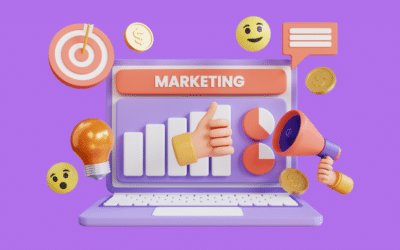Digital marketing has become a necessity for businesses to reach their target audience and generate leads. Two of the most popular digital marketing strategies are Search Engine Optimization (SEO) and Pay-Per-Click (PPC) advertising. SEO and PPC both have unique advantages and disadvantages, but ultimately choosing the right strategy depends on your industry, business objectives, and budget. In this comparison guide, we will discuss the key differences between SEO and PPC advertising as well as provide recommendations based on the latest digital marketing best practices.
What is SEO?
SEO is the practice of optimizing your website to improve its ranking on search engines like Google. The goal is to increase organic traffic to your website by ranking higher in search engine results pages (SERPs) for targeted keywords. SEO includes various techniques such as keyword research, on-page optimization, link building, and content creation.
Let’s say you are selling high-quality leather boots for women. By conducting keyword research and optimizing your website with relevant keywords, meta descriptions, and titles, you can improve your website’s ranking on Google for search terms like “women’s leather boots,” “leather boots for women,” and “high-quality leather boots.” This will help your shoe eCommerce company appear higher in search engine results pages (SERPs) and attract more organic traffic to your website. The more targeted traffic you receive, the higher the chances of generating leads and increasing sales.
What is PPC advertising?
PPC advertising is a digital advertising model in which advertisers pay a fee each time their ad is clicked. PPC ads are displayed at the top of SERPs and are marked as “sponsored” or “ad.” Advertisers bid on specific keywords to display their ads to users searching for those keywords. The goal of PPC advertising is to drive traffic to your website and generate leads.
Let’s say you are launching a new line of running shoes for women and want to promote it quickly. By setting up a PPC campaign targeting keywords like “women’s running shoes,” “best running shoes for women,” and “affordable running shoes for women,” you can display your ads at the top of the SERPs and attract potential customers to your website. With PPC advertising, you only pay when someone clicks on your ad, which means you can control your budget and measure the effectiveness of your campaign.
Comparing SEO & PPC:
- Cost:
SEO is a long-term investment and requires ongoing efforts to maintain and improve rankings. SEO costs vary based on the complexity of the project, but the initial investment is usually higher than PPC advertising. PPC advertising costs are determined by the bidding process and the competition for keywords. Advertisers have more control over their budget in PPC advertising and can adjust their bids based on performance.
- Time to see results:
SEO takes time to see results as it involves building authority and trust with search engines. It may take several months to start seeing a significant increase in organic traffic. On the other hand, PPC advertising can provide immediate results, and advertisers can start seeing traffic and conversions as soon as their ads are live.
- Click-through rate:
PPC ads have a higher click-through rate (CTR) than organic search results. This is because PPC ads are displayed at the top of the SERPs and are more visible to users. However, users are becoming more aware of paid ads and may prefer to click on organic results. SEO efforts can improve the CTR by optimizing meta descriptions and titles.
- Targeting:
PPC advertising offers precise targeting options, such as demographics, location, and device type. This allows advertisers to reach their target audience with more accuracy. SEO, on the other hand, targets users based on their search intent and the relevance of their search query.
- Long-term benefits:
SEO provides long-term benefits as it builds authority and trust with search engines. Once a website has established a strong SEO presence, it can maintain its rankings with minimal effort. PPC advertising provides short-term benefits, and traffic and conversions will stop once the ads are no longer running.
What do we recommend?
Since both SEO and PPC advertising have their advantages and disadvantages, choosing which one is right for you depends largely on your business, your industry, who your target audience is, what platforms they are using, and what your budget is.
We recommend that if you have…
- a limited budget and need immediate results, start with PPC advertising. You can test different keywords and ad copy to see what works best for your business.
- a long-term vision and want to establish a strong online presence, invest in SEO. SEO provides long-term benefits and can generate a higher ROI over time.
- the desire to maximize both short-term and long-term online visibility consider using both SEO and PPC advertising together! You can use PPC advertising to drive immediate traffic while working on building your SEO presence.
In summary, using both SEO and PPC advertising can benefit your company by improving your online visibility, generating leads, and increasing sales. While SEO provides long-term benefits, PPC advertising can help you drive immediate traffic to your website and achieve short-term goals. As your favorite team of digital marketing specialists, we would recommend using a combination of both strategies to maximize your ROI and achieve your business objectives.






